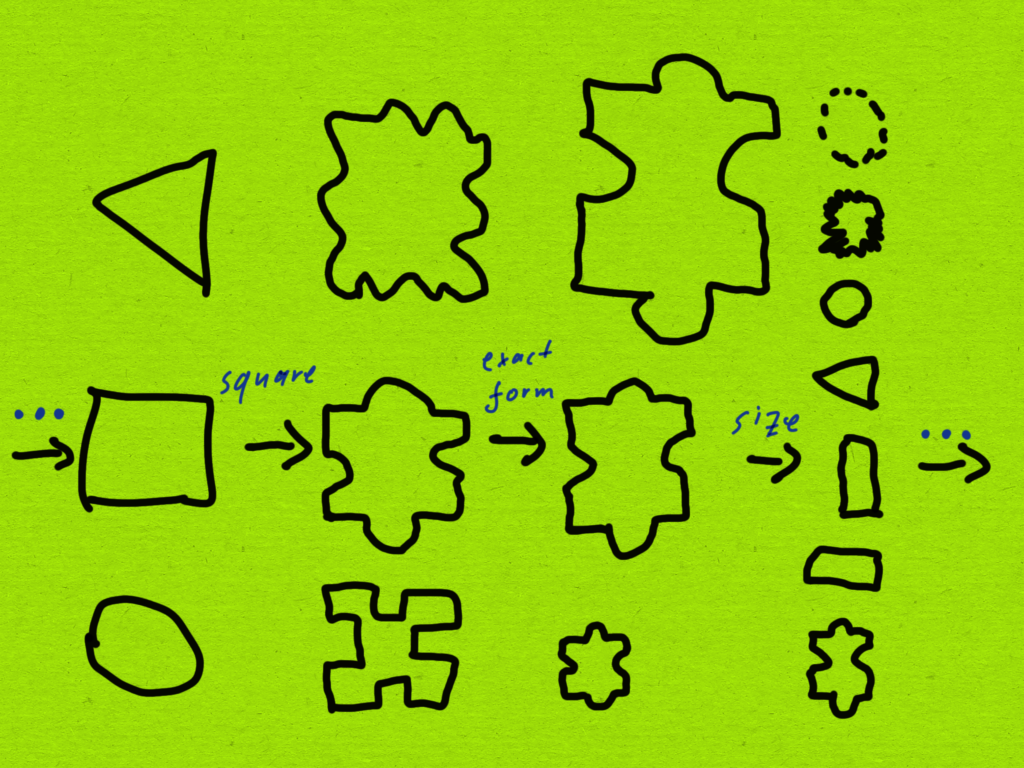Today I want to show what it means to take a step back from your subjectivity from being completely engulfed within the own, very specific experience. You may read my brief post with the title “Brief: And Where Are You? – Suddentruth“. It shows different perspectives and meta-levels in which you can perceive reality. This post goes a little bit deeper into the analysis of these thoughts.
Definition Of Ignorance
To ignore means not to know something or not being aware of it. It basically means that we have a filter applied to our experience which does not let us differentiate certain experiences. E.g., you can apply a filter to a picture which removes all colours and only leaves shades of black and white behind. It is clear that no matter what your own capabilities are, you can’t see the colours that the picture had. That’s one kind of filter. It’s a simple filter which removes a certain dimension of information. Depending on what you want to do with the information this is a problem or not.
Interpolating Where Ignorance is Unavoidable
Something that often comes up together with ignorance is the ability of humans to interpolate. It means that they will predict certain information based on learned patterns. E.g., if you show someone a black-white photography with a tree and it leaves in it, someone could identify the kind of tree based on the form of the leaves and the residual tree architecture and therefore can assume in which colours this part of the photography must look like in colour. However this could also fail if somebody interprets the information of the tree wrong and assumes it’s of a different kind. Therefore, an interpolation can be correct but also completely fail.
Ignorance And Interpolation In The Big Picture
So, the whole life is basically a big game of ‘telephone’ or ‘silent mail (Stille Post)’ in German. You may hear the words coming out of the mouth of another person and see his mimic and gesticulation but what ensures that you interpret the information in the correct way? Do you even need to interpret it correct or only correct enough? Again, it is the question of interpolation and interpretation. The same statement may be interpreted in a different way depending on the society and culture. In one of them it’s a nice gesture, in the other one they are offended. How would you know? Only if you weren’t ignorant, if you were all-knowing and had no filters.
I could go on and on but I guess think for yourself in which situations you were not-knowing, where you weren’t aware of certain information. I am sure you will find something.
Ignoring Our Ignorance or How No Experience Is Objective
You may think ‘Okay, yeah there are certain things that you don’t know, okay, fine, you are ignorant, self-awareness is the first step to a better being’, right? Well, it is not only about knowledge in the sense of being aware of certain information, it is so much more. Be aware that our experience is extremely subjective. There is no real objectivity that we can express or claim. If you meet a friend for drinking a coffee and agree that the coffee is good, does this mean it is objectively good? No, it means at this point in time that you have a subjective group experience. Even if every human that exists, will exist or has existed says that this is a good coffee, it will be a subjective group experience, just a very big group. It means in the end that the group has a common definition of a reference point and says that in comparison to this reference to coffee evaluates to be ‘good’. I mean you may think right now about what it means for you to drink a good coffee… and at this point you may notice that it does not only depend on the coffee but also in the situation you are in. Whether you drink the coffee in a cozy coffee shop, or on the run, whether you already drank five coffees, or drink it in an ice desert or sand desert. You will never decide whether the coffee tastes good in an objective way but always in reference to your current subjective state you are in.
This point of reference is so important. The example of course is very trivial and probably not important in the long term (there is always a possible scenario where it could have a long term effect, think about it), however, try to apply this concept to something that is about moral core values. What is your point of reference in discussions regarding punishment for people that did hurt others? Do you use your religious/spiritual believe system in the argumentation because that’s a pillar of your subjective reality that holds it together? Are you able to see points of reference of others or can you may even create multiple ones on your own?
Interpolation As a Skill
The capability to predict or see multiple points of reference can of course be interpreted as a trauma response, however, I like to think that just because you experience a certain kind of trauma doesn’t mean you will automatically develop this certain response behaviour. The capability to predict multiple points of reference may was already laying within you and just got awakened through this trauma. Additionally, we should never forget that whether something is a trauma to a person is also very subjective. Reality is too complex to break it down into “defined trauma leads to defined trauma response”.
One nice side effect of this skill is that you may take outrages of others less personally? Because you can see that they act correct accordingly to their subjective reality and point of reference. They defend their construction of the world because if they don’t they would need to question a lot of other things and this brings them in an unsafe world. They are basically fighting for their own survival and may attack you somehow to achieve this because you appear as a threat to their world.
I marked this side effect with a question mark because as long as you are not aware of the fact that others do not necessarily calculate points of reference and therefore have a completely different subjective reality, you could start thinking that others do bad stuff on purpose and depending on your own values you may use this as a justification to do bad stuff on your own.
Absolute Truth and Survival Instinct
Too often we live our life in the mindset of that only our experience is the absolute truth but doesn’t an absolute truth need to be independent of subjectivity and therefore objective? Well, the funny thing is we live in pure subjectivity, however, we act as if we would live in objectivity and therefore deny and invalidate others their subjective experience. It seems like humans feel uncomfortable, being confronted with their ignorance. Maybe because not knowing something means that you can’t control it which means you have a higher risk of getting into a situation that could threaten your survival. I wonder if this is a learned behaviour because when we are very young we can be very adventurous and our environment shows us restrictions all the time (parenting styles and resulting attachment styles is of course a topic for itself).
“Viewing Angle/Circle” metaphor
Here I want to introduce the metaphor of how our reality can be mapped to a viewing angle. Every human creates his own viewing angle which consists simply described as a collection of experiences and the resulting processes that we apply to every input in the present. In other words, the viewing angle describes our subjectivity.
Now, when we meet another person we can create a together an experience which can lead to an overlapping part of our viewing angle. We most likely still won’t have the exact same experience but some of it we may would express in the same way.
When you go through life how often do you meet people where it feels easy to create a shared experience and where do you feel like you have complete opposite viewing angle on whatever topic it concerns. How often did you need to adapt your own viewing angle to create this certain overlap so that you speak the ‘same language’? Are you the one who adapts or do others adapt to you? Would you even realise it when others adapted to you and would others realise when you adapt? Again, a question of ignorance.
The final result is that you always will only have a viewing angle, never a ‘viewing circle’ and yes, it can be exhausting to always switch your own angle to others and at the same time it can be an experience where you learn something because you do not only switch your perspective but actually extended it. However, if you always switch you may ask yourself what is your actually, authentic and true viewing angle. Which one feels honest to you? Where do you not switch the mask for others because otherwise you and your communication partner can’t communicate with each other? Are there some scenarios in which your environment or certain people force you unconsciously into a certain viewing angle because they basically trigger old behaviour mechanisms between you and them? Like meeting family members or old school friends at an anniversary?
Try to apply this metaphor to your own experience. Which of them could you describe this metaphor in a nice and eloquent way? Does it miss something? Would you add an additional dimension to the metaphor? E.g., just because you have the same viewing angle like someone else doesn’t mean that you focus on the same stuff in your field of view.
About Self-Awareness and Ignorance
It seems to be more common to talk about self-awareness but people make it sound like it is something that you have or you don’t, like a switch. But they miss the point. Just because you have taken one step towards self-awareness doesn’t mean you have climbed the mountain (of self-awareness). And just like climbing any other mountain, you will require rest, move forward, ask for help or the best way to continue, and sometimes you just have to try it out on yourself because no else has been there where you are with your own, very specific and subjective experiences and capabilities. And yes, there will be people that will lie about how they got there, or they had privileges, while you needed to get through your traumata first, and some people will ask you to stay or climb down to their level of self-awareness. … Feel free to do it, to reach a higher level of self-awareness is just one possible goal in your human experience, if you feel like it’s calling you, do it; don’t do it just because you see others do it. And of course remember the higher you climb the mountain, the more lonely it may become, be aware that this can create emotions that want to protect you by triggering your avoidance coping mechanisms. In this case, observe them learn some tools regarding self-regulation and regulation of emotions. Sadly, that’s something our society is ignoring a lot about right now for multiple reasons that would justify an own post.
What Are The Implications Of Not Being Ignorant?
Some of you may think ‘well, I reached the top’ or ‘what happens if I reach the top?’, to be honest the journey is the goal, not the top. Also, I personally doubt that it is possible the reach the top of this mountain. In context of the previous paragraphs this would mean that the person isn’t ignorant anymore and I think that’s just not possible within the human experience. The human experience only works because we are able to apply filter, to be ignorant. We can transform the filter, make it smaller, bigger, move it, change its attributes and capabilities but we can’t remove it. Besides that it would be overwhelming, too much information can lead to being unable to act because in the end your decision will be random as there will always be someone who will suffer through your actions and another one will receipt it as gratification. Let this sink in and realise that good and evil are also just social constructs. Basically reference points defined on the level of society which in the end tries to stabilise the current society in its form and is not necessarily good to people of other societies, e.g., what does your country care about foreigner? Does your society define good and bad foreigners? Think about it.
One additional anecdote: Some may think of a god-like being that is not ignorant and therefore aware of everything, not only now and here but of everything and everywhere at anytime. And some religions have this scenario of ‘god helps you’ or ‘how could god allow this to happen’. I think these are just so human-like statements that show a certain level of self-awareness. They bring ‘god’ down onto a human-level but ‘god’ isn’t really on this level. Maybe an actual ‘god’, not this humanised versions, would be aware that every action he could take would just move the suffering from on place to another but there is no removing of suffering in it self-possible. Suffering is a part of the human experience in the end and only the human itself can try to learn to reduce it in some way.
One way to express the different subjective realities of us is to ask two questions with the mindset of really being conceived that each of them is true.
- “How ignorant do you need to be to believe in god?”
- “How ignorant do you need to be to not believe in god?”
No matter which one you actually subscribe to or even better if you subscribe to non of both, are you capable to switch your own point of reference, your own viewing angle to strongly for a short amount of time to find all kind of reasons for each of these statements?
Final words
My final words are that everything I’ve written could be wrong. And maybe someone in the future will proof it within certain set of variables. Do I care? Well, living isn’t about being always correct. Living is about expressing the perceived reality or viewing angle in relation to a set reference point. However, reference point and perceived reality may change in the future and that’s the really good thing, about life and a certain level of awareness, that you realise that control is an illusion which means you only live if you live through hell and heaven. Make the whole experience. Enjoying the ride and waiting excited for the next sudden truth that shows that this is not a fantasy, that this is real.
P.S.: What are your pillars of your subjective reality? What if one of them becomes untrue? How would you still justify your behaviour in this changed reality?
Okay, okay, I know, writing about ‘intelligence’ can be easily taken the wrong way. Because the term is so often used in supremacy dreams of . . .
This post is a continuation of “Faith and what it means in my world view”. It breaks faith up into sets of beliefs that in . . .
Originally I wrote this piece in the mid of 2019. It is kind of the foundation for all my thinking in the further posts. (And . . .
Hm… how do I explain this topic in a simple and efficient way without getting lost in multiple rabbit holes and becoming emotional on the . . .
This is a guideline to give you something into your hands to become better at identifying your emotions. This guideline can’t and will never be . . .








